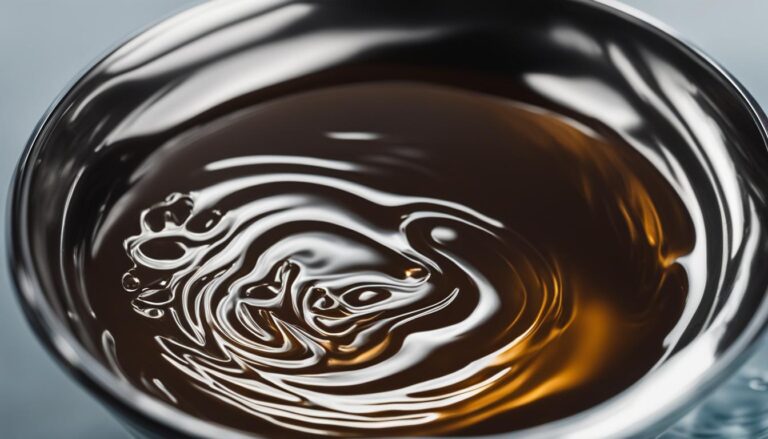Are you wondering how long your cat can go without eating? Understanding your cat’s feeding schedule is essential for their health and wellbeing. Let’s explore the consequences of not feeding cats and learn more about how long they can go without food.
Key Takeaways:
- Cats should be fed twice a day to prevent unhealthy weight gain.
- The recommended amount of food is a quarter of a cup of wet food and no more than one cup of dry food per day.
- If a cat refuses to eat for more than 24 hours, it is recommended to consult a vet.
- Cats can survive for a week or two without eating, but this causes severe distress and weakens them.
- Regular feeding is crucial to meet a cat’s nutritional needs and ensure their overall health.
Reasons Why Cats Stop Eating
Cats are known for their finicky appetites, but if your cat has suddenly stopped eating, it could be a cause for concern. There are several reasons why cats may stop eating, and it’s important to understand these signs of cat hunger and address them promptly to ensure your cat’s nutritional needs are met.
One of the common reasons why cats stop eating is dental or tooth pain. Cats can experience dental issues such as tooth decay or gum disease, which can make eating painful. Gastrointestinal issues, kidney disease, and pancreatitis can also result in a loss of appetite in cats. Additionally, digestive obstruction, anxiety or stress, or introducing a new type of food can cause a cat to refuse their meals. It’s essential to monitor your cat’s appetite and consult your veterinarian if they don’t eat for more than 24 hours.
“Regular feeding is important to meet a cat’s nutritional needs and prevent health issues.”
Regular feeding is crucial for cats as it helps provide them with the necessary nutrients and energy they need to maintain their overall health. Cats have specific nutritional needs that can only be met through a balanced diet. If a cat doesn’t receive proper nutrition, it can lead to weak muscles, poor coat condition, and other health problems.
Feeding your cat on a consistent schedule helps maintain their metabolic rate and keeps their digestive system functioning optimally. It also helps them maintain a healthy weight and reduces the risk of obesity-related issues. By following a routine feeding schedule and monitoring their appetite, you can ensure that your cat’s nutritional needs are being met.
Signs of Cat Hunger
It’s essential to be aware of the signs of cat hunger to ensure your feline friend is receiving enough food. Some common signs of cat hunger include:
- Meowing excessively or begging for food
- Acting restless or constantly searching for food
- Weight loss or a noticeable decrease in body condition
- Attempting to eat non-food items
- Lethargy or a lack of energy
If you notice any of these signs, it’s important to assess your cat’s feeding routine and consult your veterinarian if necessary. Providing regular meals and meeting your cat’s nutritional needs is vital for their overall health and well-being.
| Reasons Why Cats Stop Eating | Signs of Cat Hunger |
|---|---|
| Dental or tooth pain | Meowing excessively or begging for food |
| Gastrointestinal issues | Acting restless or constantly searching for food |
| Kidney disease | Weight loss or a noticeable decrease in body condition |
| Pancreatitis | Attempting to eat non-food items |
| Digestive obstruction | Lethargy or a lack of energy |
| Anxiety or stress | |
| Introducing new food |
How Long Can Cats Go Without Eating?
When it comes to cat food deprivation, understanding how long cats can go without eating is crucial for their well-being. While cats are known for their independent nature and ability to survive on their own, prolonged periods without food can have severe consequences.
Cats can technically survive for a week or two without eating, but this should never be a recommended or intentional practice. Going without food for such extended periods causes severe distress and weakens their immune system, making them more susceptible to health issues.
It is important to provide cats with food regularly to prevent feline starvation. The longer a cat goes without eating, the more their body starts to break down muscle tissue to fuel their energy needs. This can lead to muscle loss, weakness, and a compromised immune system.
| Duration without Food | Effects on Cats |
|---|---|
| 24-48 hours | Cats may experience a decrease in energy levels and become lethargic. |
| 48-72 hours | Dehydration becomes a significant concern as cats may lose interest in drinking water. |
| 72+ hours | Organ damage, weight loss, and potential life-threatening complications can occur. |
It is important to seek veterinary care if a cat hasn’t eaten for a day or more. The vet can determine the underlying cause for the loss of appetite and provide appropriate treatment. Regular feeding and proper nutrition are essential for a cat’s overall health and longevity.
Cats, like humans, need water to survive. While they can survive without water for a limited time, it is essential to provide them with access to fresh water daily. Without an adequate water intake, cats can become dehydrated, which can have serious consequences for their health.
On average, cats can survive without water for 2 to 3 days. However, after 24 hours without water, they start to become dehydrated, which puts a strain on their organs and can lead to complications. Dehydration can cause issues such as urinary tract infections, kidney problems, and even organ failure.
It is important to note that a cat’s water needs can vary based on factors such as their size, activity level, and the climate they live in. Cats that eat primarily dry food may require more water compared to those on a wet food diet.
The Importance of Water in Meeting a Cat’s Nutritional Needs
Water plays a vital role in meeting a cat’s nutritional needs. Cats have a low thirst drive, which means they may not drink enough water voluntarily. Therefore, it is crucial to ensure they have access to fresh water at all times.
In addition to providing water separately, wet food can be a valuable source of hydration for cats. Wet food typically contains a higher water content compared to dry food, helping to meet a cat’s hydration needs. Incorporating wet food into their diet can be especially beneficial for cats that are less inclined to drink water on their own.
| Signs of Dehydration in Cats | How to Encourage Water Consumption |
|---|---|
|
|
Adequate water intake is essential for maintaining a cat’s overall health and wellbeing. Always ensure your feline friend has access to fresh water and monitor their water consumption to prevent dehydration.
Conclusion
Understanding your cat’s feeding routine is crucial to ensure their health and wellbeing. By following a regular feeding schedule, you can meet their nutritional needs and prevent any potential health issues.
It is recommended to feed your cat twice a day, providing a balanced mix of wet and dry food. This helps prevent unhealthy weight gain and provides them with the necessary protein boost. Remember, the recommended amount is a quarter of a cup of wet food and no more than one cup of dry food per day.
Monitoring your cat’s appetite is important. If they refuse to eat for more than 24 hours, it’s best to consult a vet. This can help identify any underlying issues and ensure your cat receives the necessary care.
In addition to their food, don’t forget to provide fresh water every day. Cats can become dehydrated after 24 hours without water, leading to potential complications. Wet food can contribute to their water intake, but access to clean water is essential.




